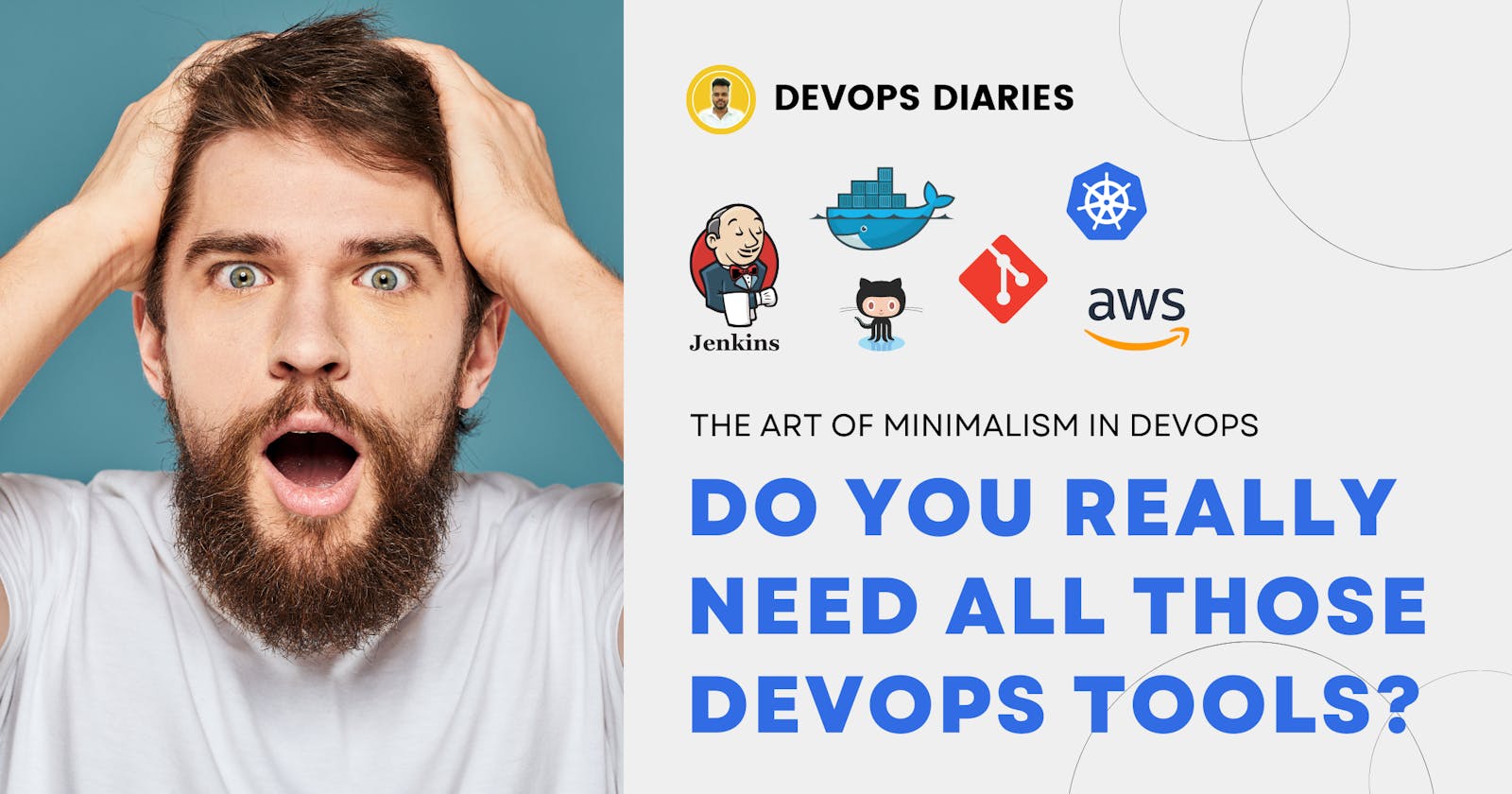The Art of Minimalism in DevOps: Do You Really Need All Those Tools?
Mastering the Essential Tools for Streamlining Your DevOps Workflow
Table of contents
No headings in the article.
DevOps is a complex field that involves a wide range of tools and processes to ensure the smooth delivery of software and applications. From code management and testing to deployment and monitoring, there are a seemingly endless number of tools available to help DevOps professionals achieve their goals.
But with so many tools at our disposal, it's easy to become overwhelmed and feel like we need to use every tool under the sun to be successful. The truth is, however, that less is often more in the world of DevOps. By embracing the principles of minimalism, you can streamline your toolkit, focus on what's important, and achieve better results.
So, what is the art of minimalism in DevOps, and why is it so important? Simply put, minimalism is the practice of using only what you need, no more and no less. In the context of DevOps, this means using only the tools that are truly essential to your workflow and avoiding the trap of trying to do too much with too many tools.
By focusing on the tools that are most important to you and your work, you can avoid clutter and confusion, and instead focus on what really matters: delivering high-quality software and applications quickly and effectively.
Of course, it's not always easy to determine which tools are truly essential and which ones can be safely discarded. Some factors to consider when deciding which tools to use include your specific needs and goals, the size and complexity of your projects, and the skills and preferences of your team.
Ultimately, the art of minimalism in DevOps is about finding the right balance between using enough tools to get the job done, and not using so many tools that you become bogged down and inefficient. By streamlining your toolkit and focusing on what's most important, you can achieve better results and simplify your DevOps workflow.
In conclusion, the world of DevOps is filled with a seemingly endless number of tools, and it can be tempting to try and use them all. But by embracing the principles of minimalism, you can streamline your toolkit, focus on what's important, and achieve better results. So, the next time you're considering adding a new tool to your DevOps arsenal, take a step back and ask yourself: do I really need this, or can I achieve the same results with less?
When it comes to being a successful DevOps engineer, there are a few key tools that every professional should be familiar with. Here are some of the most important tools you should consider learning:
Git: A version control system that is widely used in the software development industry. It allows developers to manage and track changes to their code, and collaborate effectively with others.
Docker: A containerization platform that allows you to package and deploy applications in isolated containers. This makes it easier to deploy and manage applications and ensures that your applications will run consistently across different environments.
Ansible: A configuration management tool that helps you automate the deployment and management of your applications. With Ansible, you can automate repetitive tasks and reduce the risk of human error.
Jenkins: An open-source automation server that provides a wide range of plugins for building, testing, and deploying software. With Jenkins, you can automate many aspects of your DevOps workflow, from building and testing code to deploying applications to production.
Nagios: A popular open-source monitoring tool that helps you keep an eye on your systems, applications, and network infrastructure. Nagios allows you to detect and resolve issues before they become critical problems.
Kubernetes: A container orchestration platform that helps you manage and scale your containers and applications. With Kubernetes, you can automate the deployment, scaling, and management of your containers, making it easier to deploy and manage your applications.
Terraform: A tool for managing infrastructure as code. With Terraform, you can manage and provision your infrastructure resources using code, making it easier to automate and manage your infrastructure.
These are just a few of the most important tools that every DevOps engineer should be familiar with. Of course, the exact tools you need to know will depend on your specific needs and goals, but by mastering these key tools, you'll be well on your way to becoming a successful DevOps professional.
